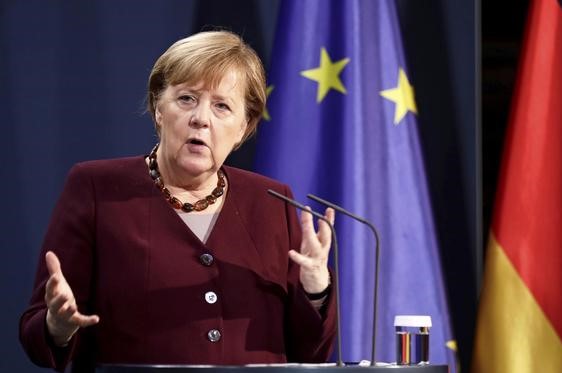In an effort to ensure to safety of its citizenry and provide normalcy during Christmas German state premiers have agreed on new coronavirus lockdown measures for December and probably January.

They also include a mini-amnesty over the Christmas period, from December 23 to January 1, according to a draft proposal circulated on Tuesday.
“Once more, we need to draw on our strengths,” she said, noting that the extended measures could be lifted should there be an unexpected drop in case counts.
“Unfortunately, that is not foreseeable at the moment,” she said.
Federal and state leaders also agreed to limit private gatherings to five people from two households – with children aged 14 and under exempted from the count, Merkel said. However, the virus contact restrictions are due to be eased between December 23 and January 1 to enable people to celebrate during the Christmas period.
Up to 10 people are to be allowed to meet, with children aged 14 and under exempt from the limit, representatives decided, although the state of Schleswig-Holstein plans to stick to its own rules. The measures still have to be signed off at a later date in December, as the government only has the power to implement coronavirus measures for four weeks in advance.
“Our success to date has not been as great as we’d hoped,” said Bavarian Premier Markus Soeder, noting that the current partial lockdown is not as severe as what was mandated six months ago.
Merkel and deputy prepare Germans for stricter coronavirus measures Berlin Mayor Michael Mueller said it would be important to keep following the principles through the Christmas and New Year’s holidays, which come after the current rules are set to end. “It’s not necessary to organize as big an event as you might have had in past years,” he said. “This is about how we can better protect people.”
Federal and state governments are also expected to ban fireworks on large public squares on New Year’s Eve, and are likely to recommend avoiding their use during the celebration altogether, a source said earlier during the day. As expected, sporting activities are set to remain subject to the current restrictions at least until Christmas. Germany closed bars, restaurants and leisure facilities and brought back nationwide contact restrictions at the start of November in response to a surging second wave of infections.
On Wednesday, the coronavirus-related death toll rose in Germany by 410 – the highest daily jump in the country so far – to reach 14,771. The Robert Koch Institute for disease control added another 18,633 infections to its confirmed caseload, which now amounts to 961,320 cases in the pandemic so far.
Source: DW














